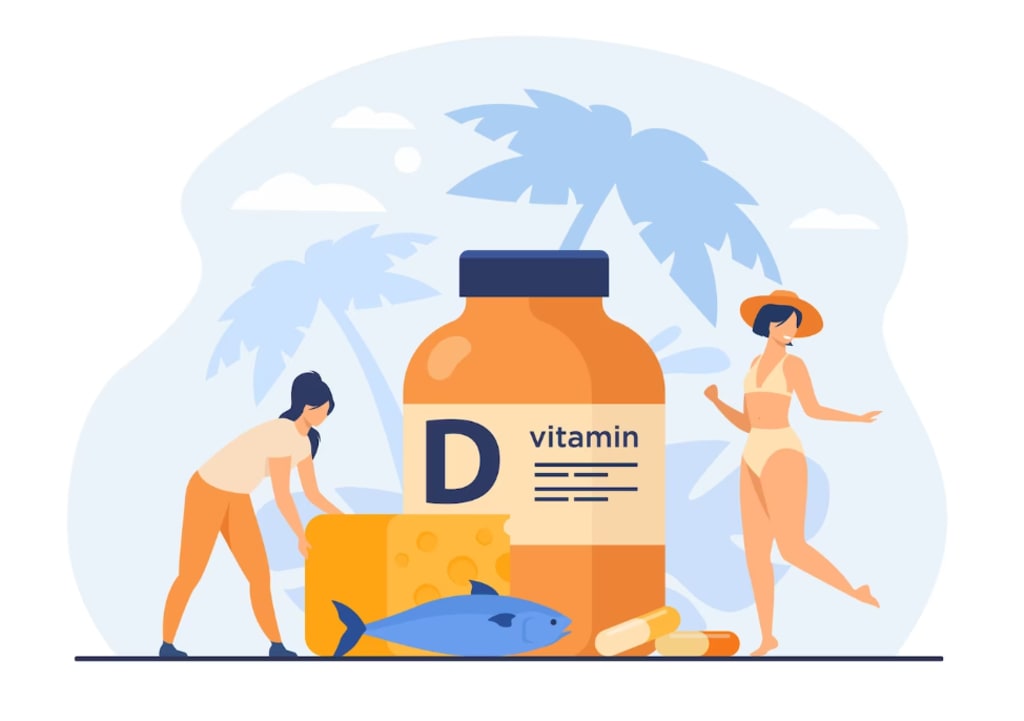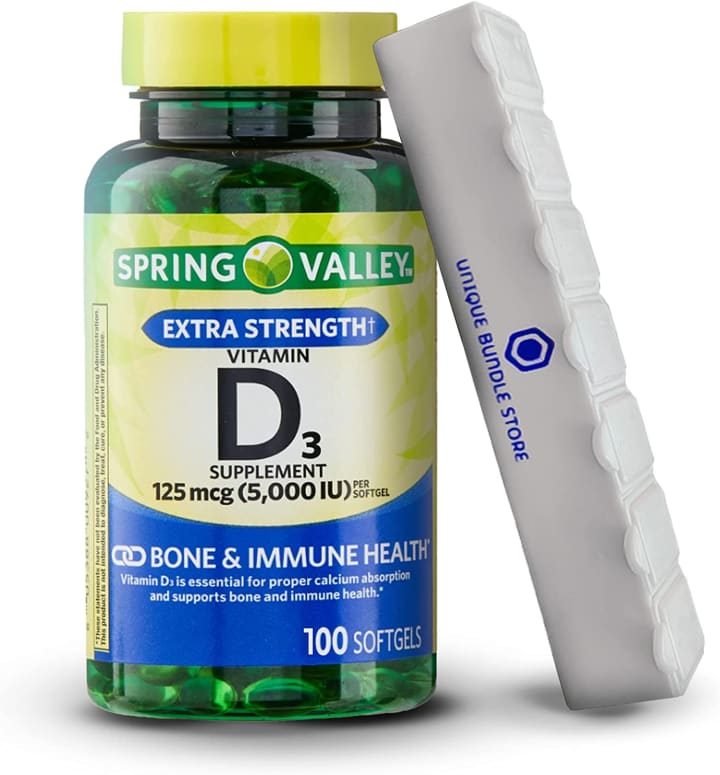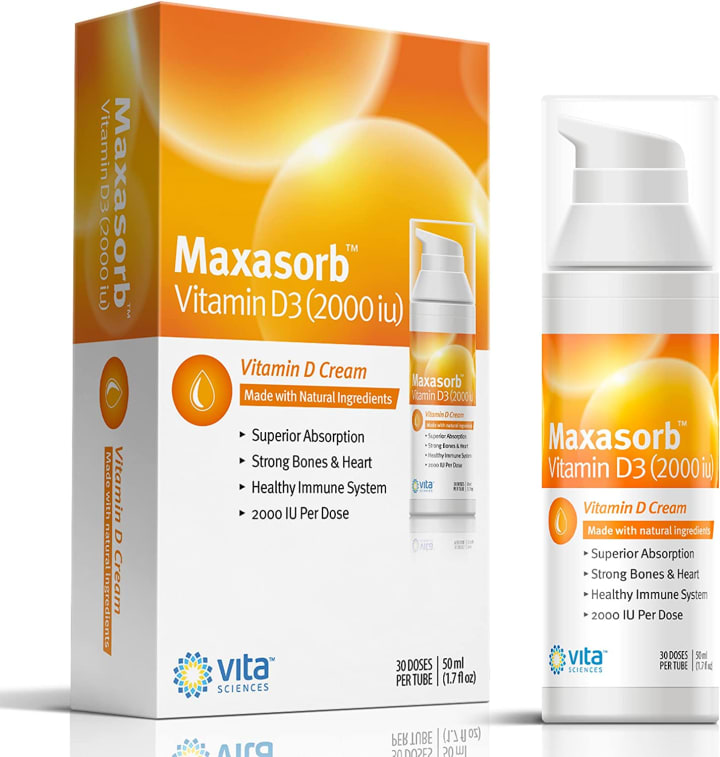Choosing the Optimal Vitamin D Supplementation: Weekly vs. Daily Dosing
Exploring the Pros and Cons of Weekly and Daily Vitamin D Supplementation for Optimal Health

How do you know your vitamin D pill is working as well as it possibly can?
The body uses vitamin D, sometimes known as the "sunshine vitamin," for a variety of functions, including sustaining strong bones and enhancing immunity.
But the age-old query, "Can you ever have too much of a good thing?" still stands.
The consequences of big vitamin D dosages given weekly, as opposed to the customary lower quantity taken each day, have been the subject of recent discussion. Which option offers the best chance for absorption? Which is better for you? Researchers are still debating the most effective technique to supplement this important vitamin.
In general, however, specialists continue to advise fewer daily dosages (with the exception of a few particular health conditions).
Here are some qualities to look for in a vitamin D supplement and why it's usually best to take it slowly and steadily for most people.

BUY YOUR VITAMIN D TABLETS HERE
Expert Opinion on Vitamin D Dosage
The National Institutes of Health Office of Dietary Supplements states that persons aged 19 to 70 should consume 15 micrograms (IU), or 600, of vitamin D daily. The maximum quantity deemed safe for adults is 4,000 IU, which is the acceptable upper limit.
There are many different vitamin D doses available in pills, gummies, and other supplements. While many only have a few hundred IU, some have as many as 5,000 IU.
One explanation for the variety in OTC vitamin D dosages is that several studies have demonstrated that for some populations, weekly administration of a greater vitamin D dose may have some good health effects.
For instance, a 2023 meta-analysis showed that very high weekly doses (up to 21,000 IU) decreased COVID-19 patients' hospitalization and death in intensive care units. In a different 2018 research, vitamin D3 deficient pregnant women were given either 1,000 IU daily or 50,000 IU weekly. After 10 weeks, the group that received the high weekly dose saw no negative side effects and had greater blood levels of vitamin D.
Even while there may be instances where a greater weekly dosage is necessary, the majority of medical professionals are still hesitant to advise the general public to follow this path.
The majority of patients who need vitamin D supplements should take a little quantity each day, according to Nate Wood, MD, a general medicine instructor at Yale Medicine, who spoke with Health. "A larger weekly dose may be prescribed for patients who are severely vitamin D deficient for the short term."
The co-founder of Vous Vitamin and vitamin specialist Arielle Levitan, MD, concurred: "Taking a daily dose gives you more flexibility with regard to actual dosing."
Dr. Levitan also went through the various considerations that go into determining the ideal vitamin D intake. "There are various variables that affect the precise dosage that each person should take. Where you live, your ethnicity, other medical concerns including GI disorders, and specific symptoms are all factors that might affect your needs, the expert noted.

GET YOUR VITAMIN D HERE
Lack of vitamin D in the US
The sun is a never-ending source of vitamin D, and numerous foods also have significant levels. The "sunshine vitamin" is abundant in salmon, tuna, egg yolks, fortified cereals, and some types of mushrooms.
But a surprising number of Americans still don't get enough. According to data from 2022, 41% of Americans were vitamin D insufficient, with vitamin D deficiencies being more common in women, non-Hispanic Black Americans, and those between the ages of 20 and 29.
The average daily intake of vitamin D for women between the ages of 51 and 71 is 308 IU from food and supplements, with just 140 IU coming from food, according to research from Harvard's T.H. Chan School of Public Health.5 That is very different from the 600 IU that is good for your health.
Symptoms of vitamin D insufficiency include weariness, muscular weakness, and bone discomfort. However, even if you are deficient, you may be unaware of it. A blood test is the only method to find out whether your vitamin D levels are low.
If your levels are adequate (50 nmol/L or more), your doctor may not advise supplements. A daily D regimen, on the other hand, is probably a good option for lower levels.
"For patients who don't spend much time in the sun, take a daily multivitamin, or regularly eat foods fortified with vitamin D, 600 to 800 IU of vitamin D per day may be recommended," Dr. Wood explained. "Older adults and pregnant women may need more."

GET YOUR VITAMIN D
How to Make Vitamin D Absorbable
Vitamin D is one of only four vitamins that must be absorbed with fat. As a result, Dr. Levitan suggests taking it alongside a fat-containing meal. This does not have to contain fatty items such as burgers or butter; any source of fat would suffice.
Some people prefer to take a vitamin D supplement at a specified time of day, such as first thing in the morning or shortly before bed, although research is mixed on whether this improves efficacy. The optimum time of day to take your supplement is likely to be whenever works best for you and helps you keep to a regimen.
Choosing the Best Vitamin D Supplement
If you want to increase your vitamin D levels, there are several supplements to select from. This micronutrient is available in tablet form, chewable form, liquid form, and other forms. Some folks even use vitamin D-boosting sunlamps!
Look for a label that suggests third-party testing when selecting a high-quality supplement. This indicates that a supplement company has enabled the ingredients of its product to be validated by an independent agency. NSF, USP, BSGC, and Informed-Sport are examples of third-party testing firms, so look for vitamins with their mark of approval.
Whether you pick vitamin D2 or D3, both will raise your blood levels, although most studies suggest that D3 raises levels more effectively and keeps them longer than D2. You should also consider taking a magnesium supplement, as this mineral aids in the activation of vitamin D

GET YOUR VITAMIN D HERE
About the Creator
Stefan Lüdi
Author | 🌍 World Builder | 🖋️ Wordsmith
Experience perfection with Stefan Lüdi. Discover exceptional items that embody style, quality, and innovation. Enter a world where desires come to life.






Comments
There are no comments for this story
Be the first to respond and start the conversation.